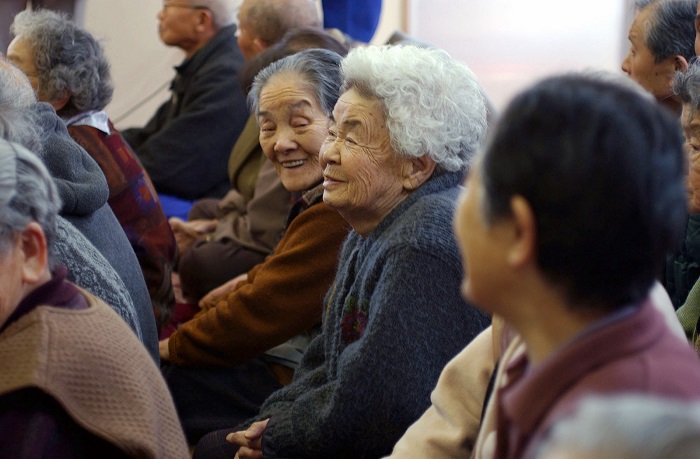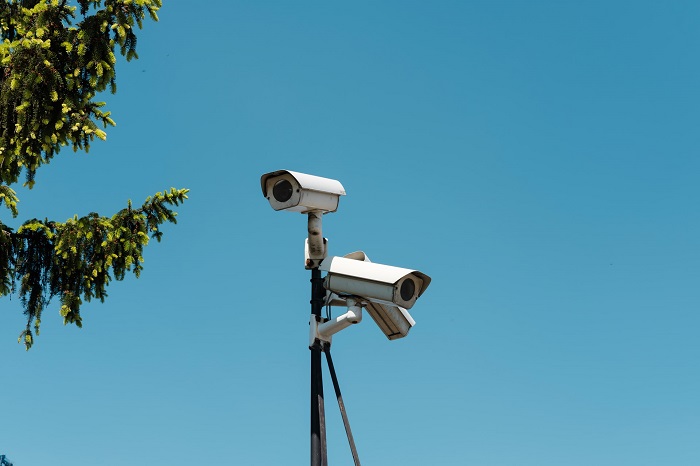ISABEL RUBIO ARROYO | Tungsteno
From key rings and shoes with GPS insoles to QR codes that are stuck to a fingernail and provide a patient's contact information when scanned, these are some of the technologies used to track elderly people with dementia. This illness is one of the leading causes of disability and dependence among the world's elderly, according to the World Health Organisation. Faced with a future in which diseases such as Alzheimer's may reach epidemic proportions, the Japanese city of Itami is using a sophisticated surveillance system on its streets to track those affected.
More than 1,000 sensors to track dementia sufferers
As populations age, many countries are looking for ways to cope with the huge expense of caring for the elderly and making cities safe for them. Authorities in Itami, a Japanese city of about 200,000 people, have opted to fill their city with sensors and cameras, according to The New York Times. The more than 1,000 devices are identified by a picture of a smiling person between radar symbols on either side.
In theory, the cameras installed by the city are equipped with receivers that communicate with small sensors carried by those enrolled in the programme. When they pass in front of them, the device registers their position and sends it to the mobile phone of an authorised person. Initially, this system was presented as a tool to combat crime and to supervise minors on their way to and from school. Since 2015, it has also been possible to register elderly people with dementia in the programme, although it has not been implemented on a massive scale for this purpose. While last year almost half of primary school pupils were registered, only 190 seniors used the programme.

Japan is the country with the highest proportion of people with dementia. Credit: US Marine Corps.
The silent 'epidemic' plaguing Japan
One of the goals of this programme is to make life easier for the elderly. More and more seniors are having difficulty remembering, thinking or making decisions, according to the US Centers for Disease Control and Prevention (CDC). If there is one place where this problem is particularly acute, it is Japan: the country has the highest proportion of people with dementia in the world, according to the Organisation for Economic Co-operation and Development (OECD).
Although many cities there have adult day care centres, they can be very costly and sometimes inefficient in adequately supervising patients who are prone to wandering. As the WHO notes, this type of illness "has physical, psychological, social and economic impacts, not only for people living with dementia, but also for their carers, families and society at large." In 2007, a 91-year-old man with dementia was struck and killed by a train in the Japanese city of Obushi, according to the Japan Today website. Years later, a court ordered the family to pay compensation to the train company for delays caused to the service. Although the decision was eventually overturned, the court had concluded that the measures the family had taken to prevent the elderly man from wandering were insufficient.
A variety of technologies are used in Japan to track people with dementia. Credit: BBC News.
A surveillance system not without controversy
While these sensors promise to help locate people with dementia, while maintaining some independence, they have also raised some privacy concerns. To begin with, it may be difficult to determine to what extent and in which cases an elderly person with dementia can give informed consent to participate in the programme. A review published in the journal International Psychogeriatrics concludes that the decision on whether, how and when to use such systems should be made jointly by the person with dementia, his/her family and professional caregivers.
Kumiko Nagata, the lead researcher at the Tokyo Dementia Care Research and Training Center, tells The New York Times that the most promising applications are those that offer users greater freedom by alleviating the fear of missing out. However, she worries that such systems will "just be used as tools for dealing with ‘problem’ people," that is, anyone who has become a burden on their family or officials. The mayor of Itami himself, Yasuyuki Fujiwara, said he was concerned about the perception that such surveillance systems could have on the population. When the system was implemented, he said he did not intend for private citizens to think they were being spied on.
Officials in Itami have not made public the technical details of the system, but insist that only the family can review the data. However, the increasing reliance on all kinds of sensors and connected devices by individuals around the world provides new opportunities for wrongdoers and it is difficult to guarantee 100% that such systems cannot be hacked. As INTERPOL Secretary General Jürgen Stock says, "cybercriminals are developing and boosting their attacks at an alarming pace," especially since the pandemic began.
As the number of people with dementia increases rapidly in Japan and around the world, tackling dementia has become a public health priority with social and economic repercussions. In 2019 alone, the estimated total global societal cost of dementia reached $1.3 trillion, according to the WHO. While some tracking systems can be useful in facilitating the day-to-day lives of patients and their families, ensuring privacy and security is critical to the safe and widespread implementation of these technologies.
· — —
Tungsteno is a journalism laboratory to scan the essence of innovation. Devised by Materia Publicaciones Científicas for Sacyr’s blog.
